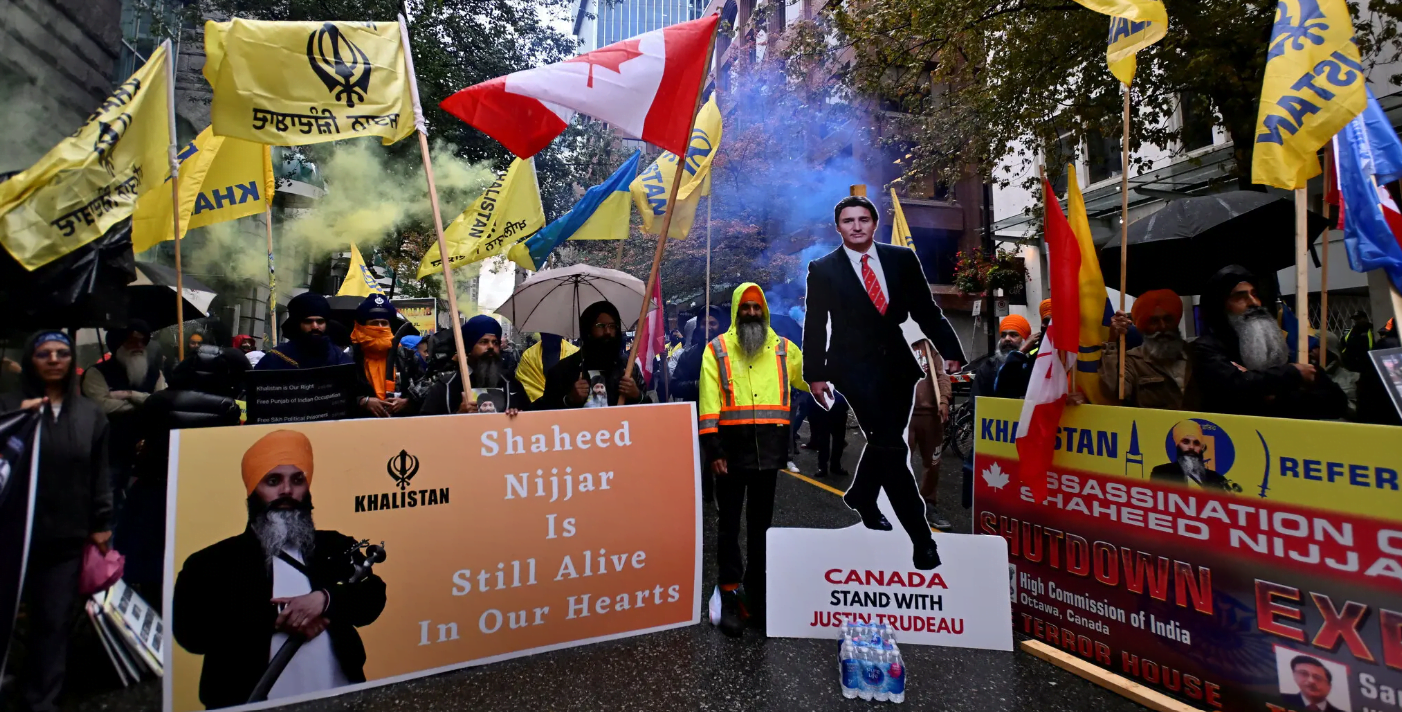Introduction
The recent murder of Hardeep Singh Nijjar, a Sikh separatist leader in Canada, has ignited a firestorm of controversy and diplomatic tension between Canada and India. Nijjar’s assassination on June 18, 2023, outside a Sikh temple in Surrey, British Columbia, by masked gunmen has drawn international attention and condemnation, highlighting significant concerns regarding sovereignty, justice, and human rights.
Background of Hardeep Singh Nijjar
Hardeep Singh Nijjar was a vocal advocate for the Khalistan movement, which seeks an independent Sikh state in the Punjab region of India. Labelled as a terrorist by India, Nijjar had been living in Canada where he was a prominent community leader and activist. His assassination is not just a tragic event but a significant marker in the long-standing Sikh diaspora’s struggle for recognition and rights.
The Arrests and Allegations
The investigation took a significant turn when Canadian authorities arrested three Indian nationals: Karan Brar, Kamal Preet Singh, and Karan Preet Singh, charging them with first-degree murder and conspiracy. These developments were further complicated when Canadian Prime Minister Justin Trudeau suggested possible links between the Indian government and the assassination, an allegation India vehemently denies.
Diplomatic Fallout
This case has strained diplomatic relations, with both nations engaging in a tit-for-tat expulsion of diplomats and a freezing of dialogues, including trade negotiations. India’s reaction was swift, denouncing Trudeau’s allegations as “absurd” and accusing Canada of harbouring Sikh extremists.
Human Rights Concerns
The killing of Nijjar raises serious questions about the safety of political activists in exile and the reach of national governments in foreign territories. It underscores a troubling trend where voices of dissent are silenced violently, challenging the principles of freedom of speech and human rights.
Conclusion
The assassination of Hardeep Singh Nijjar is a stark reminder of the fragility of international diplomacy and the ongoing struggle for human rights worldwide. It raises critical questions about the extent to which governments will go to silence opposition, even beyond their borders, and the role of the international community in safeguarding political exiles. This incident not only marks a low point in Canada-India relations but also poses a broader threat to global norms of justice and human dignity.
Further Readings & Resources
- The Rising Tensions Between India and Canada Following Sikh Leader’s Murder
- For the latest updates and analysis on the arrests connected to Hardeep Singh Nijjar’s murder, including the international implications, check out The New York Times article.
- For detailed coverage and insights on Hardeep Singh Nijjar, you can visit The Independent’s topic page.
